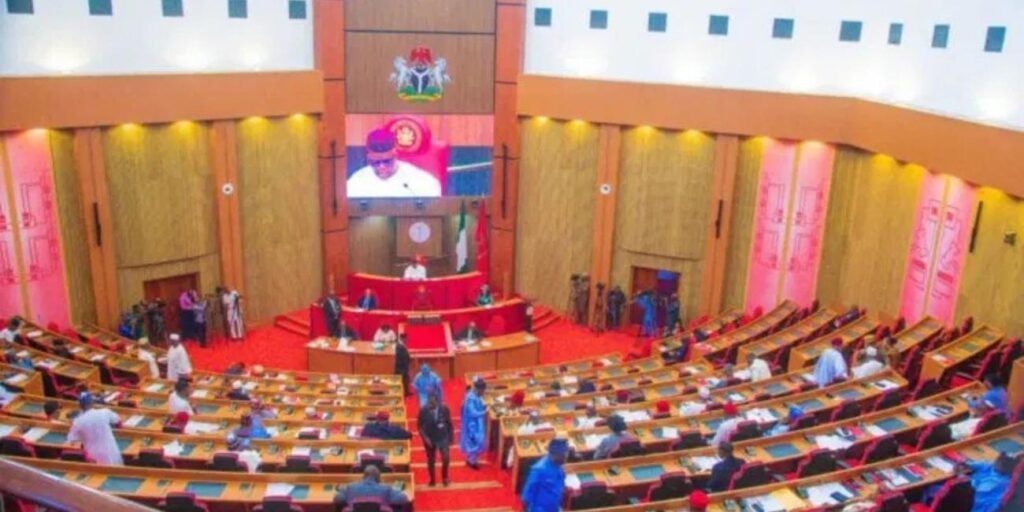
The Nigerian Senate has approved President Bola Ahmed Tinubu’s request to raise ₦1.15 trillion from the domestic debt market to finance the unfunded portion of the 2025 budget deficit.
The approval came on Wednesday following the adoption of the report presented by the Senate Committee on Local and Foreign Debt during plenary.
According to the committee’s findings, the 2025 Appropriation Act makes provisions for a total expenditure of ₦59.99 trillion — a ₦5.25 trillion increase from the ₦54.74 trillion initially proposed by the Executive. The adjustment resulted in a total deficit of ₦14.10 trillion.
Out of this amount, ₦12.95 trillion had previously been approved for borrowing, leaving an unfunded gap of ₦1.15 trillion (₦1,147,462,863,321), which the Senate has now authorized to be sourced domestically.
In a related development, the upper chamber adopted a motion sponsored by Senator Abdul Ningi (PDP, Bauchi Central), mandating the Senate Committee on Appropriations to strengthen its oversight functions. The committee is to ensure that the newly approved borrowing is utilized strictly for its intended purposes during the 2025 fiscal year.
President Tinubu, in a letter dated November 4, 2025, sought the National Assembly’s approval for the additional domestic borrowing to cover the remaining deficit in the 2025 budget. The correspondence, read by Senate President Godswill Akpabio during plenary, emphasized that the borrowing was essential to bridge the funding gap and guarantee the smooth implementation of critical government programmes and projects.
“The loan is necessary to bridge the shortfall in available resources and to ensure full execution of the government’s fiscal priorities,” the President’s letter read in part.
Following the letter’s presentation, Akpabio referred the request to the Senate Committee on Local and Foreign Debt, chaired by Senator Aliyu Wammako (APC, Sokoto North), for review. The committee was tasked with examining the proposal and reporting back within a week — a timeline it met with its recommendation for approval.
With this latest approval, the Tinubu administration continues to rely heavily on domestic borrowing to fund its expansive fiscal agenda, a trend that has drawn mixed reactions from economists and lawmakers alike, amid concerns over the nation’s rising debt profile.